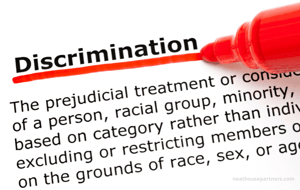English Nationalism Not a Protected Belief: Key Lessons for Employers
In a recent case, the Employment Appeal Tribunal (EAT) upheld a tribunal decision that a worker's belief in English nationalism, which included forcibly removing Muslims from the UK, was not a protected philosophical belief under the Equality Act 2010 (EqA 2010).
Bobby Ahmed
Managing Director Bobby is a highly experienced Employment Law Solicitor and the Managing Director at Neathouse Partners. He has a wealth of knowledge on all aspects of Employment Law & HR, with a particular specialism in TUPE and redundancy.Date
11 September 2024Updated
11 September 2024
Table of contents
Tags
In a recent case, the Employment Appeal Tribunal (EAT) upheld a tribunal decision that a worker's belief in English nationalism, which included forcibly removing Muslims from the UK, was not a protected philosophical belief under the Equality Act 2010.
The tribunal found that the belief did not meet the criteria of being "worthy of respect in a democratic society" as outlined in the Grainger test.
Furthermore, it breached Article 17 of the European Convention on Human Rights, which prohibits any reliance on Convention rights to justify activities aimed at undermining others' fundamental freedoms.
The EAT reaffirmed that while the threshold for protection under the Equality Act is low, beliefs that promote harassment, intolerance, or discrimination against others will not be protected.
Key Takeaways for Employers
- Clarity on Protected Beliefs: Not all beliefs are protected under the Equality Act. Employers should be aware of the criteria that distinguish legitimate beliefs from those that are harmful or discriminatory.
- Social Media Posts Matter: The employee's social media activity played a significant role in this case. Employers should consider how online conduct may reflect workplace values.
- Discrimination Policies: Ensure that your anti-discrimination and harassment policies are robust and take into account harmful beliefs that could affect workplace harmony.
- Employers should be mindful of the limitations of the protection offered by the Equality Act 2010 and the ECHR when dealing with extreme or prejudiced views.
This case highlights the need for employers to balance respect for personal beliefs with ensuring those beliefs do not harm others in the workplace.
Related blog posts
Have questions?
Get in touch today
Contact us, and our team will get back to you within 24 hours. We value your questions and are committed to getting them answered quickly.


Hello! I am Nicky
Just fill in the form below with your details, and I will arrange for a member of our team to give you a call.
By clicking, you agree to our Privacy Policy






